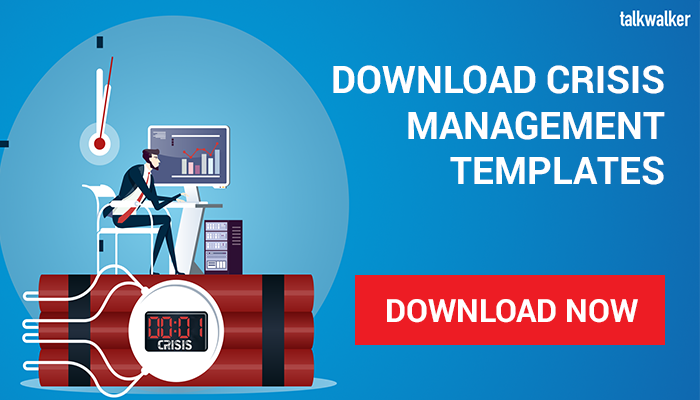In a world where globalization is the new normal, the PR industry is rapidly changing. Client questions are becoming more sophisticated, and the need for strong analytics and qualitative insights is growing day by day. We will also hear about one of Brittany's favorite topics, why companies need to understand that CEO-activism matters more and more.
Weber Shandwick is a leading public relations company, headquartered in New York.
Brittany, what is your role within Weber Shandwick?
Brittany: I work at Weber Shandwick and I'm the VP of Analytics in our Dallas office.
How would you describe yourself, what are your passions and what is your job mission?
Brittany: I describe myself as a “relentlessly curious optimist”. I'm always looking to learn new challenges and find new ways to solve problems using data. I love to travel, hang out with my family and friends and you'll usually find me in the gym in the mornings and walking my two Siberian Huskies in the afternoon. I proudly call myself a data geek and I really love developing teams of talented data strategists so that they can uncover insights, help people make better decisions and ultimately solve problems using data.

You work for a major PR company, Weber Shandwick. What is Weber Shandwick’s secret to success?
Brittany: Weber Shandwick is successful for many reasons: we have a legacy of earned media storytelling at our core and we're meeting the new marketing challenges of today with data and analytics, plus it's a really great place to work. There's a culture of collaboration and creativity and that's one of the reasons why we were named in Ad Age’s ‘Best Places to Work’ List in 2019. All those factors contribute to Weber Shandwick’s success.
How do you bridge the gap between data science and business leaders?
Brittany: One of the best ways to communicate data results is through storytelling. In a Harvard Business Review article about data science and the art of persuasion, they talk about the power of narrative to communicate results. However, it's really underutilized in the field of data science and that's something that I'm really passionate about: learning the structure and mechanics of narrative and applying it to data visualizations and presentations so that the right audience understands our message and can act on results.
What are some of the challenges you face today?
Brittany: There are many challenges that face us in the field of data and analytics but there are a couple that really stand out to me: one is a lack of clear questions to answer and two is that results aren't always used by decision-makers. That really uncovers a gap between analytics teams and business leaders – which is where communications comes in. That's what we do: we can bridge that gap.

What makes brand reputation difficult to manage?
Brittany: Brand reputation is the public perception of your brand and it has a critical impact on things like brand loyalty, consumer trust and purchase intent. Our chief reputation officer at Weber Shandwick, Leslie Gaines-Ross, suggests that one of the reasons why it's so complex to manage is the increasing number of stakeholders in the digital age. We now have everyone from media to investors to customers to employees and more who are all part of the perception of your brand. We're living in an increasingly unpredictable world which just adds to the complexity of managing brand reputation.
What are three essentials brands must consider to defend their brand reputation?
Brittany: There are many factors that go into defending brand reputation but three essentials are: 1) be prepared; 2) let technology work for you; and 3) know when to engage and when not to. It is critical to have an effective plan in place to be prepared to protect and defend a brand reputation when issues emerge, seen or unforeseen.
Is purpose-driven CEO-activism an important trend?
Brittany: Purpose-driven CEO-activism is an important trend. From the Weber Shandwick and KRC research, we found that more than 6 in 10 marketing and communications professionals across the US, UK and China would have a more favorable opinion of their CEO if they spoke out on hotly debated current issues. And that rises to 8 in 10 if the CEO has spoken out in the past. This means that while there are risks, staying quiet may no longer be an option. 8 in 10 consumers feel CEOs should speak out if a company's values feel violated or threatened. We also saw that more than half of respondents indicated that they discuss whether their CEO should speak out, and 60% indicated that those discussions have happened more than over the past few years. The rise in those discussions show that not only do companies understand the importance of CEO-activism and brand reputation; they are also realizing the importance of being prepared.

How will your job change in the next few years?
Brittany: The field of analytics is changing literally every single day and I'm really excited about what that change means. Our clients are trying to answer more and more complex challenges and the access we have to technology and data is always changing, so I really focus on hiring a team of talented data strategists that have a diverse set of skills so we can solve any analytics problem that comes our way.
How will the public relations industry change in the next few years?
Brittany: We will be faced with a lot of change in the public relations industry over the coming years. Client questions are becoming more and more complex and we are going to become increasingly more sophisticated about the technology and data analytics that we do to solve our clients’ challenges. One of the things we're already doing is at a global scale customizing measurement and analytics programs to deliver customized insights to each of those specific global markets and that's only going to continue to grow over the next years as we all become more globally focused.
Stay tuned for the next CMO 1x1 coming soon!
We have an amazing lineup of CMOs and industry experts to discuss the issues, topics, and trends that matter most to you.
Talkwalker tip: To help you deal with a crisis, download two free crisis management templates. The roadmap you navigate if a crisis strikes, and a checklist in case of emergency.




